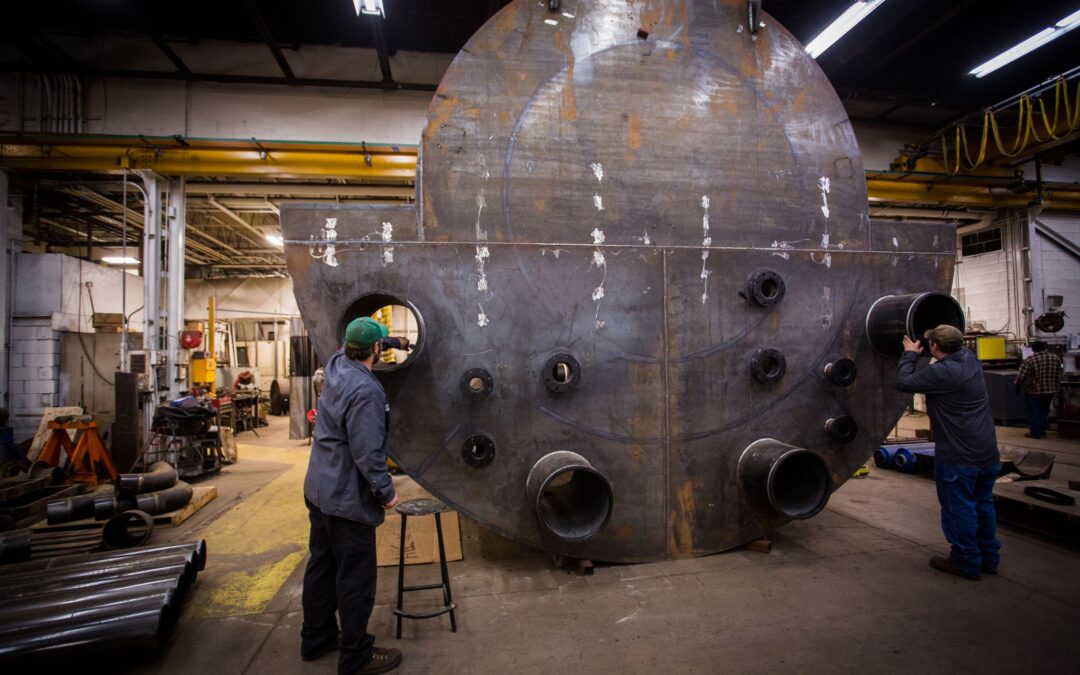If your operation is looking to replace pipelining or other wear components, selecting the right material is essential. No matter the industry or application, the right-wear material will provide consistent quality and long wear life, minimizing downtime and replacement costs.
With the wide range of products and materials on the market, it can be challenging to determine the best wear materials (or supplier) for your next project. To help get you started, you’ll find a comparison between rubber and polyurethane lining below. Additionally, you’ll learn more about how Iracore wear components can add value to your operation in the short and long-term.
Rubber Lining – The Established Standard
Natural and synthetic rubber compounds have been the industry standard for pipelining and other wear components for nearly a century. Today, there is a vast array of unique compounds suitable for every application, with many striking the balance between cost-efficiency and dependable performance. Generally speaking, rubber is the ideal wear material for applications involving potential impingement, direct impact, and other abrasion caused by larger particle sizes. Rubber is generally less suitable for applications involving oil or high amounts of hydrocarbons.
Iracore has been manufacturing rubber-lined products for mining, aggregate, and other heavy industry across North America for over 60 years. Leveraging decades of experience, our experts can help you select the right lining compound based on chemical compositions, particle size, and temperature/pressure ratings in your operation’s fluid system, all while providing exceptional value and service.
Learn more about Iracore’s rubber-lined products here.
Polyurethane – Performance and Innovation
If durability and wear material life is a priority for your operation, urethane-lined wear components are the ideal solution. Repeated testing shows polyurethane consistently outperforms unlined steel pipe and metallic pipe liners in challenging applications, offering considerable cost and safety advantages while maximizing throughput and efficiency. Urethane-lined components are suitable for many applications, especially those involving oils, hydrocarbons, and abrasion/tearing caused by sliding impact.
Unlike many of our competitors, Iracore sources raw materials from major chemical producers to create proprietary polyurethanes for any requirement. Our team of chemists and engineers use decades of field knowledge to design high-performance polyurethanes for our customers’ unique needs, ensuring that they meet the highest standards of quality, performance, and safety.
Learn more about Iracore’s urethane-lined products here.
Which is Right for My Operation?
Depending on your industry, operating requirements, and budget, your operation could require either rubber or polyurethane wear components. One is not necessarily better than the other; both material types have specific applications and use cases in which they will outperform other products.
Iracore offers a comprehensive selection of compounds and materials for any industrial application. No matter what your system needs, our expert team can help you find the solutions your operation needs for safe, efficient production.
Complete Wear Solutions with Iracore
Since 1957, Iracore has manufactured high-performance wear materials for a wide variety of heavy industrial applications. Our rubber and polyurethane products provide top performance in any operating environment, backed by experience and expertise to help you find the right materials for your next project.
With decades of scientific and field data behind them, all Iracore wear materials are engineered for optimal performance in the most demanding operating conditions. Over 60 years of experience goes into every wear product we produce, each uniquely tailored to our customers’ specifications and requirements—partner with our expert team today to find the ideal solution for your wear challenges.
Looking for Lining?
Contact us today to learn about Iracore’s complete range of wear material solutions.

Recent Comments